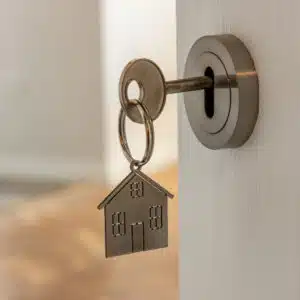Despite the city being known as America’s “Gateway to the West,” many people have been happy to make St. Louis their home, rather than the journey out farther into the frontier. With its world-class museums and zoo, iconic baseball club, and impressive food and music scene, it’s not surprising that residents are eager to settle down in the Lou.
St. Louis’ real estate situation is a testament to its popularity, as the city’s housing market has been rated “very hot” by Zillow, meaning that the current environment is more advantageous for sellers than buyers.
However, the median listing price in St. Louis is $139,900, which is still 65 percent lower than the national median listing price of $275,000. Additionally, the city’s Zillow home value index of $119,100 is 61 percent below the national average of $225,300.
And although St. Louis’ home value index increased by only 1 percent in 2018, compared to the roughly 8 percent growth the national home value index enjoyed during the same period, Zillow forecasts that it will rise by over 9 percent in 2019.
Average St. Louis home values have climbed an impressive 16 percent over the past three years, as well.
Recent growth and a projected heating up of housing prices mark St. Louis as a seller’s market, although there are always fluctuations and outliers that affect how much you actually pay for a home. It’s also important to keep in mind that individual mortgage and refinancing rates will be influenced by other national and local economic factors, including state and city laws, foreclosure rates, and competition among lenders in the area.
Aspiring homebuyers should also remember that their own personal finances will largely determine what type of loan products or mortgage and refinancing rates they qualify for. Borrowers should fully explore these options when attempting to find the best mortgage rates in St. Louis.
Table of Contents:
- Current Rates in St. Louis
- Mortgage Factors in St. Louis
- Best Mortgage Rates in St. Louis
- Best Lenders in St. Louis
Current Mortgage & Refinancing Rates in St. Louis
Factors of Mortgage Rate in St. Louis
A variety of factors determine mortgage and refinancing rates for current and potential homeowners in St. Louis, Missouri. Learning more about these variables can help you save more money during the home financing process.
Credit score
Your credit score will likely be the first thing looked at by a lender when determining what types of loans and rates you may qualify for, or whether you are even eligible for a home mortgage loan. Though different mortgage providers have their own credit score minimum requirements, and some have no minimum at all, most lenders will require a score of at least 620 for a conventional loan.
Furthermore, the higher your credit score the lower your mortgage rates, as good credit indicates that you are responsible and punctual about paying off your debts. Conversely, a lower credit score tends to translate to higher rates or even the inability to qualify for a loan, although it is often possible to receive a mortgage with bad credit.
Down Payment
The size of your down payment is another major factor in determining your rates. Larger down payment will usually lead to a lower rate, as well as an overall lower monthly mortgage payment since the principal is smaller. For that reason, financial experts and advisors have traditionally recommended borrowers put down 20 percent or more, although that rule of thumb has adhered to less and less over the years.
These days, many lenders offer low or no money down loans. While such deals can save borrowers a lot of money upfront, they may not prove especially profitable in the long term, as the higher rates and monthly payments will likely cost more money over the course of paying off the loan.
Loan Term
The loan term refers to the number of years a borrower has to pay off their loan, which can range anywhere from 5 to 30 years. Mortgage rates are also heavily influenced by the length of the loan term, with shorter terms frequently carrying lower interest rates but higher monthly payments, and longer loan terms boasting lower monthly payments with higher rates.
If you have the financial means to pay off a loan relatively quickly or plan on selling the property before the end of the mortgage, you can often save money by opting for a shorter loan term.
Type of Refinance
When interest rates fall, many homeowners try to take advantage of the new conditions by refinancing their home loan. There are many different refinancing options, such as the rate-and-term refinance, which allows borrowers to lower their rate or change their loan type. It’s become one of the most common refinancing choices.
The cash-out refinance, the cash-in refinance, and the short refinance are other types that have proven popular with borrowers.
How to Get the Best Mortgage Rates in St. Louis
The St. Louis housing market currently favors sellers, so home shoppers are advised to be especially thorough when searching out the city’s best mortgage rates. That means comparing quotes from multiple mortgage providers, which could save a borrower tens of thousands of dollars over the life of a mortgage. To score the best rate possible, be sure to heed these instructions:
Compare the Different Mortgage and Refinance Options
As a borrower, you may qualify for many different mortgage products, and choosing the right one could be a deciding factor in whether you obtain the best rates available. For example, opting for an adjustable-rate mortgage may save you more money in the long run than a fixed-rate mortgage, if you are able to pay off the loan relatively quickly.
Similarly, you may be eligible for one of the many loan products designed specifically for first-time homebuyers, or one of the government-backed mortgages exclusively available to active duty military, veterans, rural homebuyers, and other certain groups. Borrowers should study the different types of mortgages and decide which one would be the best deal for them.
Don’t Settle for Just One or Two Quotes
Research by Freddie Mac has shown that the average borrower could save up to $1,500 by obtaining one extra rate quote when applying for a mortgage, and save $3,000 or more by getting five quotes. Those numbers show just how cost-efficient it can be to simply shop when looking for a loan, since settling for the first and only offer you receive could cause you to lose out on literally thousands of dollars.
Consider Additional Costs and Fees
Although monthly mortgage payments and rates remain top of mind for borrowers, it’s also important to remember there are several other factors that ultimately affect the final price tag of a specific loan. Be sure to factor in all additional costs, including potential broker fees, underwriting costs, prepayment penalties, and closing costs.
A Good Faith Estimate should also be provided by a lender within a few days of submitting your application.
Recommended Companies in St. Louis
There are many mortgage companies operating in St. Louis, and the smartest way to save is to compare quotes from as many of them as possible. Here are some recommended lenders to get you started on the comparison shopping process:
- Quicken Loans: The country’s largest lender and our No. 1 choice for the best mortgage provider, Quicken Loans distinguish itself from other mortgage providers with its 90 Day Rateshield™ benefit, which allows you to lock in your rate for 90 days while considering other options.
- NBKC Bank: A designated top VA mortgage provider, NBKC Bank is a convenient online lender that allows you to complete and track your mortgage application online.
- Rocket Mortgage: Another online lender, Rocket Mortgage offers the same 90 Day rate-lock. This lender is known for the speed and convenience of its online application process.
- Bank of America: One of the best lenders for borrowers who can’t afford large down payments, Bank of America provides first-time homebuyers a 3 percent down payment loan program with no mortgage insurance.







